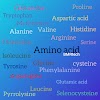Vitamin K
Vitamin K plays a key role in helping the blood clot, preventing excessive bleeding. Unlike many other vitamins, vitamin K is not typically used as a dietary supplement.
Vitamin K is actually a group of compounds. The most important of these compounds appears to be vitamin K1 and vitamin K2. Vitamin K1 is obtained from leafy greens and some other vegetables. Vitamin K2 is a group of compounds largely obtained from meats, cheeses, and eggs, and synthesized by bacteria.
Vitamin K1 is the main form of vitamin K supplement available in the U.S.
Vitamin K refers to structurally similar, fat-soluble vitamers found in foods and marketed as dietary supplements. The human body requires vitamin K for post-synthesis modification of certain proteins that are required for blood coagulation or for controlling binding of calcium in bones and other tissues.
Uses of Vitamin K
Phylloquinone, also known as vitamin K1, is found in plants. When people eat it, bacteria in the large intestine convert it to its storage form, vitamin K2. It is absorbed in the small intestine and stored in fatty tissue and the liver.
Without vitamin K, the body cannot produce pro-thrombin, a clotting factor that is necessary for blood clotting and bone metabolism.
Most Americans are not at risk of a vitamin-K deficiency. It is most likely to affect newborns and those with a malapsorption problem, due, for example, to short-bowel syndrome, cystic fibrosis, celiac disease, or ulcerative colitis.
Newborns normally receive a vitamin K injection to protect them from bleeding in the skull, which could be fatal.
The recommended adequate intake for vitamin K depends on age and gender. Women aged 19 years and over should consume 90 micrograms (mcg) a day, and men should have 120 mcg.
Benefits
Vitamin K benefits the body in various ways.
Bone health
There appears to be a correlation between low intake of vitamin K and osteoporosis.
Several studies have suggested that vitamin K supports the maintenance of strong bones, improves bone density and decreases the risk of fractures. However, research has not confirmed this.
Cognitive health
Increased blood levels of vitamin K have been linked with improved episodic memory in older adults.
In one study, healthy individuals over the age of 70 years with the highest blood levels of vitamin K1 had the highest verbal episodic memory performance.
Heart health
Vitamin K may help keep blood pressure lower by preventing mineralization, where minerals build up in the arteries. This enables the heart to pump blood freely through the body.
Mineralization naturally occurs with age, and it is a major risk factor for heart disease. Adequate intake of vitamin K has also been shown to lower the risk of stroke.
Sources of Vitamin K
Vitamin K1 occurs in high amounts in leafy green vegetables, such as kale and Swiss chard. Other sources include vegetable oils and some fruits.
Sources of menanoquines, or K2, include meat, dairy products, eggs, and Japanese “natto,” made from fermented soy beans.
Here are sample some food sources of vitamin K:
10 sprigs of parsley contains 90 micrograms (mcg)
a 3-ounce serving of natto contains 850 mcg
a half-cup serving of frozen and boiled collard greens contains 530 mcg
one cup of raw spinach contains 145 mcg
1 tablespoon of soybean oil contains 25 mcg
a half-cup serving of grapes contains 11 mcg
a hard-boiled egg contains 4 mcg
Most adults in the U.S. are believed to consume enough vitamin K.






0 Comments